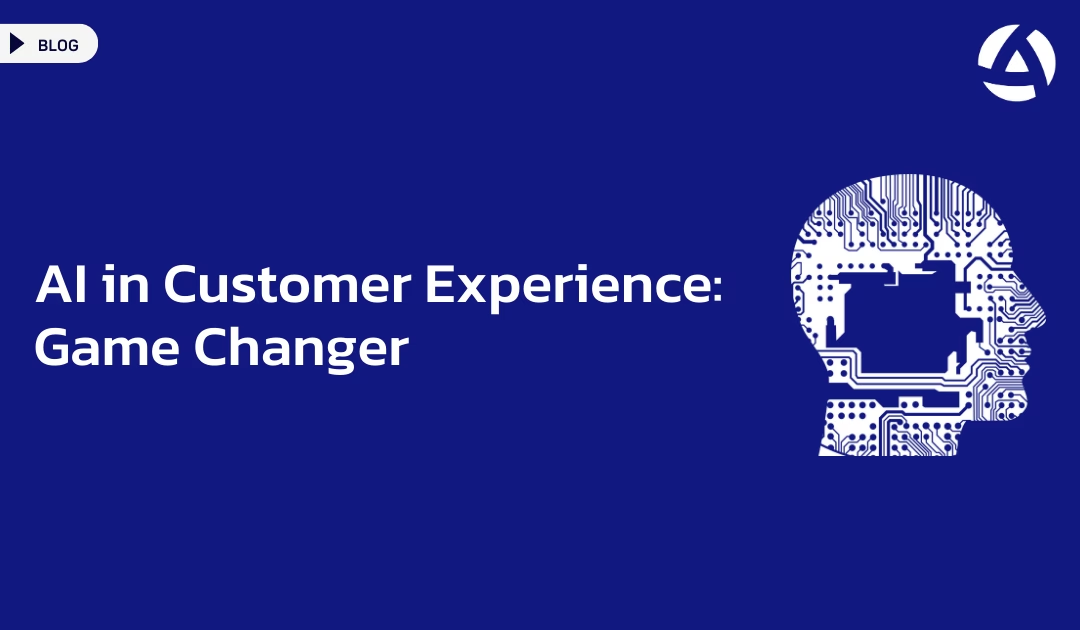Customer expectations are evolving rapidly, and businesses must adapt to meet these demands. Artificial Intelligence (AI) has emerged as a powerful tool in the customer experience (CX) space, enabling companies to deliver personalized, efficient, and meaningful interactions. From automating routine tasks to predicting customer needs, AI is redefining how businesses connect with their audience. Let’s explore the ways AI is influencing customer experience and why it’s becoming an indispensable part of modern CX strategies.
Personalization at Its Best
Customers no longer want generic interactions—they expect brands to understand their preferences and deliver tailored experiences. AI makes this possible by analyzing customer data, such as browsing history, past purchases, and interaction patterns. For example, an e-commerce platform can use AI to recommend products that align with a customer’s style or needs. This level of personalization not only improves satisfaction but also fosters loyalty and repeat business.
Instant Support Through AI Chatbots
Waiting for customer support can be frustrating, especially when the issue is urgent. AI-powered chatbots and virtual assistants provide instant responses to customer queries, regardless of the time of day. These tools can handle a variety of tasks, from answering FAQs to processing orders, ensuring customers get the help they need without delay. By automating routine inquiries, businesses can also free up human agents to focus on more complex issues, improving overall efficiency.
Predicting Customer Needs
One of the most exciting applications of AI in CX is its ability to anticipate customer needs. Predictive analytics uses machine learning to analyze historical data and identify trends. For instance, if a customer’s behavior suggests they might encounter a problem, AI can proactively offer solutions or guidance. This proactive approach not only prevents potential issues but also demonstrates that the brand values its customers’ time and satisfaction.
Creating Consistent Omnichannel Experiences
Customers interact with brands across multiple platforms—social media, email, websites, and more. AI helps businesses deliver consistent experiences across these channels by unifying customer data. For example, if a customer starts a conversation on chat and later switches to email, AI ensures the transition is seamless by providing context to the support agent. This consistency enhances the overall customer journey and builds trust.
Understanding Customer Emotions
Emotions play a significant role in customer interactions. AI-powered sentiment analysis tools can gauge customer feelings from text, voice, and even facial expressions. This allows businesses to tailor their responses based on the customer’s mood. For example, if a customer seems frustrated, the system can escalate the issue to a human agent or offer a gesture of goodwill to resolve the problem.

Automating Repetitive Tasks
AI excels at handling repetitive tasks, such as processing returns, managing inventory, or updating customer records. By automating these processes, businesses can reduce errors and improve efficiency. This not only saves time but also ensures customers receive accurate and timely service, contributing to a positive experience.
Driving Data-Backed Decisions
AI’s ability to process and analyze large datasets provides businesses with valuable insights. These insights can inform decisions across various areas, from marketing campaigns to product development. For example, AI can identify common pain points in customer feedback, enabling businesses to address these issues and improve their offerings.
Improving Customer Retention
Retaining existing customers is often more cost-effective than acquiring new ones. AI helps businesses identify at-risk customers and take steps to re-engage them. For instance, if a customer hasn’t made a purchase in a while, AI can trigger a personalized email with a special offer or a reminder about their favorite products.
Real-Time Feedback for Continuous Improvement
AI enables businesses to collect and analyze customer feedback in real-time. This allows for quick identification of issues and immediate action to resolve them. For example, if customers frequently complain about a specific feature, AI can flag it for review, ensuring the problem is addressed promptly.
Gaining a Competitive Edge
In a crowded market, standing out requires more than just good products or services—it requires exceptional customer experiences. AI gives businesses the tools to deliver faster, smarter, and more personalized interactions. Companies that leverage AI in their CX strategies are better equipped to meet customer expectations and build lasting relationships. You can find more about CX in AI at our product page.
Frequently Asked Questions
How does AI improve customer satisfaction?
AI improves customer satisfaction by enabling personalized interactions, providing instant support, and anticipating customer needs through predictive analytics. These capabilities ensure customers feel valued and understood, leading to higher satisfaction levels.
Can small businesses benefit from AI in customer experience?
Absolutely. AI-powered tools like chatbots and sentiment analysis are becoming more accessible and affordable, making them viable options for small businesses. These tools can help small businesses deliver exceptional experiences without the need for large investments.




